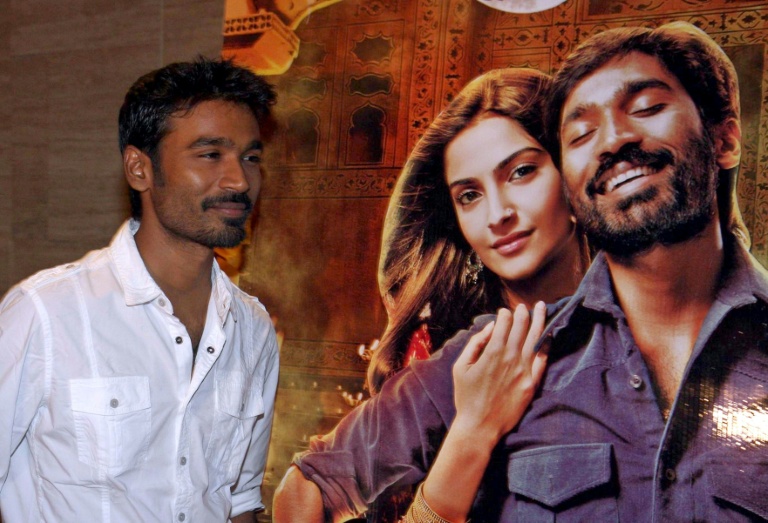Science
Bollywood Faces AI Revolution as Filmmakers React to Change

Bollywood is undergoing a significant transformation as artificial intelligence (AI) begins to reshape the Indian film industry. This shift has sparked a mix of alarm and enthusiasm among filmmakers, with AI being utilized to modify existing films and even create new ones. The conversation gained momentum when producers re-released the 2013 hit “Raanjhanaa” with an altered ending, transitioning from a tragic conclusion to a more optimistic one. This modification, which featured the protagonist’s eyes flickering open, incited backlash from the film’s director, Aanand L. Rai, and actor Dhanush, who criticized the change as a violation of artistic integrity.
Dhanush expressed his discontent on social media, stating, “This alternate ending has stripped the film of its very soul.” He emphasized that the decision to alter the film despite his objections sets a concerning precedent for the future of storytelling. Rai echoed these sentiments, asserting that while AI represents a significant advancement, it should not alter the past narratives that have defined cinema.
In a notable development, the entertainment firm Collective Artists’ Network announced India’s first fully AI-generated feature film, “Chiranjeevi Hanuman – The Eternal,” slated for a 2026 release. This mythological epic aims to blend ancient legends with AI technology, telling the story of the revered Hindu monkey god Hanuman. Responses from industry figures illustrate a growing divide in opinions regarding AI’s role in filmmaking.
Filmmaker Vikramaditya Motwane remarked sarcastically on social media, “Who needs writers and directors when it’s ‘Made in AI’?” This sentiment reflects a broader concern among traditionalists who believe that the essence of film should remain rooted in human creativity and expression. The industry is now caught in a tug-of-war between those who view AI as a cost-saving innovation and those who advocate for the preservation of artistic integrity.
Director Shakun Batra represents a more optimistic perspective, having utilized AI technology in a five-part short film series. He argues that AI can coexist with human creativity, suggesting that a future collaboration between the two could yield compelling results. Batra insists, “I don’t encourage AI as a replacement to human endeavor of expression,” emphasizing that technology should enhance rather than replace traditional filmmaking.
Veteran filmmaker Shekhar Kapur, known for classics such as “Masoom” and “Mr. India,” remains unconcerned about AI’s potential impact on storytelling. He believes that great narratives thrive on unpredictability, a quality that AI currently lacks. Kapur stated, “The best stories are unpredictable and AI cannot handle unpredictability,” reinforcing the idea that AI might only disrupt formulaic filmmaking.
As AI technology continues to emerge, it poses both challenges and opportunities for the film industry. Kapur noted that the initial impact of AI might be felt most acutely in high-budget films, particularly those reliant on action sequences. He is proactively integrating AI into his work and plans to establish an AI-focused film school in Mumbai’s Dharavi slum, which could democratize access to filmmaking resources.
The future of cinema lies not only in the hands of filmmakers but also in the audience’s response. Rai highlighted the overwhelming support from fans for the original version of “Raanjhanaa,” illustrating that viewer preferences will ultimately shape the industry’s direction. “The way they reacted to AI is much bigger than the way I reacted,” he said, acknowledging that the film belongs as much to the audience as to its creators.
As Bollywood navigates this complex landscape, the dialogue around AI’s role in filmmaking will likely continue to evolve, reflecting broader societal changes in technology and creativity. The industry stands on the brink of a new era, where the fusion of artificial intelligence and human artistry could redefine the cinematic experience for generations to come.
-

 Science2 months ago
Science2 months agoToyoake City Proposes Daily Two-Hour Smartphone Use Limit
-

 Health2 months ago
Health2 months agoB.C. Review Reveals Urgent Need for Rare-Disease Drug Reforms
-

 Top Stories2 months ago
Top Stories2 months agoPedestrian Fatally Injured in Esquimalt Collision on August 14
-

 Technology2 months ago
Technology2 months agoDark Adventure Game “Bye Sweet Carole” Set for October Release
-

 World2 months ago
World2 months agoJimmy Lai’s Defense Challenges Charges Under National Security Law
-

 Technology2 months ago
Technology2 months agoKonami Revives Iconic Metal Gear Solid Delta Ahead of Release
-

 Technology2 months ago
Technology2 months agoSnapmaker U1 Color 3D Printer Redefines Speed and Sustainability
-

 Technology2 months ago
Technology2 months agoAION Folding Knife: Redefining EDC Design with Premium Materials
-

 Technology2 months ago
Technology2 months agoSolve Today’s Wordle Challenge: Hints and Answer for August 19
-

 Business2 months ago
Business2 months agoGordon Murray Automotive Unveils S1 LM and Le Mans GTR at Monterey
-

 Lifestyle2 months ago
Lifestyle2 months agoVictoria’s Pop-Up Shop Shines Light on B.C.’s Wolf Cull
-

 Technology2 months ago
Technology2 months agoApple Expands Self-Service Repair Program to Canada









